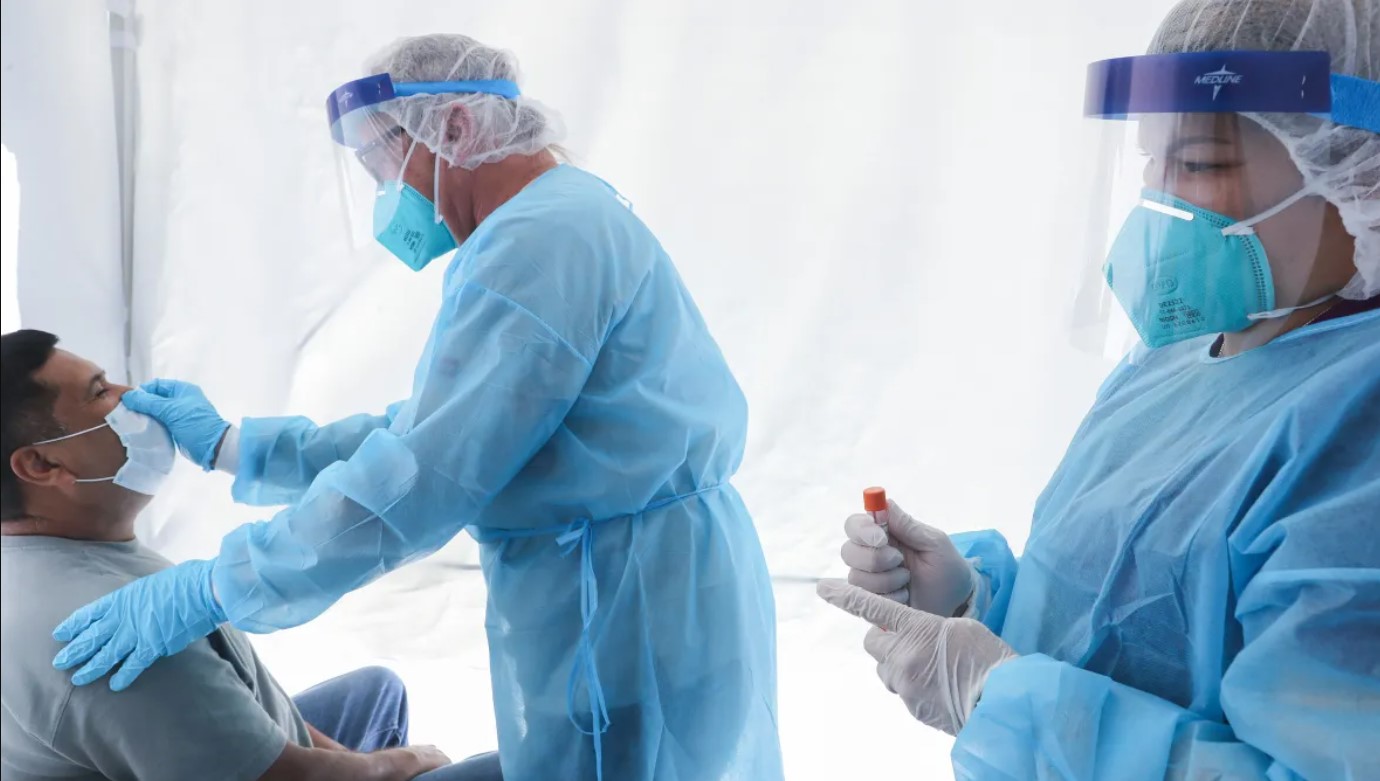Calls for Ukraine
Calls for Europe
Calls for USA

A groundbreaking preclinical study shows how targeting a virus enzyme with a new drug can prevent complications of long-term coronavirus infection, providing hope for millions of people and a powerful tool for future coronavirus threats.
More than 77 million people worldwide experience lingering symptoms after recovering from Coronavirus 2019 (COVID-19), yet an effective and reliable prevention of prolonged coronavirus disease remains elusive.
In a recent preclinical study published in Nature Communications, a team of researchers from Australia investigated a new antiviral compound that may prevent these long-term effects of prolonged COVID-19. This new antiviral compound, which targets the viral enzyme papain-like protease (PLpro), could potentially be a candidate for the first direct treatment of long COVID-19, giving hope to the millions of people whose daily lives depend on this disease.
Prolonged COVID
The SARS-CoV-2 coronavirus has infected hundreds of millions of people worldwide, and the effects of the disease go far beyond the initial illness. Many people who recover from a mild form of the infection continue to suffer from long-term symptoms such as fatigue, head fog, lung and heart problems. This condition is known as long-term COVID, which affects about one in three non-hospitalized patients.
Although vaccines and modern antiviral drugs reduce severe illness and mortality, they do not protect against these lingering symptoms. Most existing therapies target the main protease of the virus (Mpro), but another viral enzyme, PLpro, also plays an important role in viral replication and suppression of the immune response. Despite this, PLpro remains an underutilized drug target.
To develop a novel antiviral agent targeting the PLpro enzyme of the SARS-CoV-2 virus, the researchers screened more than 400,000 small molecules using a high-throughput assay designed to detect PLpro activity. Sixteen promising compounds were identified, which were then screened using surface plasmon resonance to assess binding and selectivity.
The team improved the most promising drug WEHI-P1 by changing its chemical structure to create the compound WEHI-P4, which has shown strong activity in laboratory biochemical, cellular and antiviral tests. The scientists determined the binding mechanism of this compound using X-ray crystallography and found that it engaged a new binding pocket on PLpro that is not utilized by existing drugs.
Further structural improvements led to the creation of WEHI-P8, which demonstrated favorable drug properties including potent inhibition of PLpro, good bioavailability, and minimal interaction with human enzymes that could cause side effects.
The researchers then tested WEHI-P8 in preclinical mouse models of COVID-19 The study also included behavioral assessments and tissue analysis to evaluate cognitive function and organ-specific pathologies after recovery from infection.
The study showed that targeting the viral enzyme PLpro with the novel compound WEHI-P8 significantly reduced the severity of acute and long-term COVID-19 symptoms in preclinical models. In mice infected with SARS-CoV-2, treatment with WEHI-P8 reduced viral load, prevented weight loss and reduced lung inflammation.
Compared to standard treatment, WEHI-P8 was more effective in reducing immune cell infiltration and cytokine production, even without the need for an adjuvant drug such as ritonavir.
Treatment with WEHI-P8 significantly reduced the effects of the disease. Treated mice showed improved lung tissue health, reduced inflammatory markers in the brain, and improved performance in memory tests. Notably, female mice that exhibited more severe symptoms responded well to treatment, reflecting sex differences that have also been observed in long-term cases of COVID in humans.
The new antiviral compound also showed cross-reactivity with other coronaviruses, suggesting it could be used in future outbreaks.
Dr. Marcel Doerflinger, one of the lead authors of this study and head of one of the laboratories on the research team, said, “Our preclinical studies have accomplished what no currently approved treatment has yet been able to do – prevent the most debilitating symptoms of long-term COVID in mice.”
Please rate the work of MedTour
